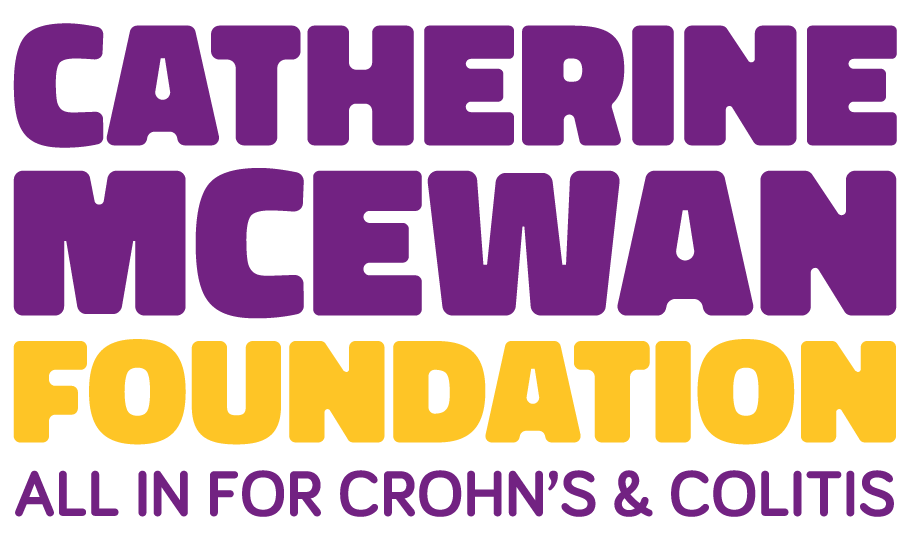After 16 fantastic months, our Catherine McEwan Fellow, Rachel Harris, has now moved onto a new position. Rachel joined the team at the Royal Hospital for Children in Glasgow and has been involved in some fantastic research and studies into Crohn’s and Colitis in Scotland. We asked Rachel to give us an insight into her time as a Fellow and the work she has been doing on IBD within that time…
Hello everyone! Sadly, my time with the IBD team at the Royal Hospital for Children, Glasgow has come to an end. However, as a team, we have achieved so much during my 16 months as Catherine McEwan Fellow and I would love to tell you all a little bit about that.
As a new role within the department, my time was split between working with the Clinical Research Facility on lots of different IBD-based research projects; and the clinical areas of RHC as a doctor looking after the gastroenterology inpatients on the ward, and outpatients within the IBD clinic. This is where some of you may have met me!
My role has proven to be a fantastic addition to both the clinical and research teams! As well as looking after our lovely patients, we have managed to produce a number of very exciting research projects which we hope will make a positive impact on our present and future patient.
During my time with the IBD team I have worked very closely with Lisa – our fabulous IBD research nurse – and the research and clinical teams, to enrol our patients into a number of international studies. These include the Inception Cohort and Safety Registry, a very important study collecting information on new IBD patients from diagnosis, aiming to assess the safety and effectiveness of the treatments we currently use.
And also the Reduce Risk study, a trial looking at the most effective way to treat patients with newly diagnosed Crohn’s disease and keep them well.
These studies aim to provide us information on which treatments work best for our patients on a global scale and the results will help inform the decisions we make for our patients in future practice around the world.
We have highlighted a number of specific things which we have noticed in our patients by describing their cases in medical journals. These have included reports highlighting skin staining or low mineral (phosphate) levels as side effects of iron infusions in IBD patients. We have highlighted these cases to reduce the chances of the same problems happening to patients elsewhere.
Our study looking at steroid use and dependency within our IBD population has also been published. Steroids are good for making IBD better but can have side effects, especially if you are on them for a longer time.
This study was to highlight patients who had been on steroids for longer than recommended. We looked for signs of steroid use in more than 200 patients. This highlighted we have low rates of steroid use and for the vast majority, plans were put in place to allow patients to come off steroids as quickly as possible, while still trying to keep their IBD under control.
We have also submitted data to national and international studies, looking at the high total numbers of children with IBD in Scotland, how patients with bad colitis that need hospital stays do (acute severe colitis), and the use of a new therapy (ustekinumab) being used in Crohn’s disease.
Our work has been presented at local, national and international meetings; and all of these publications and presentations aim to increase awareness of complications and other issues relevant to IBD patients within the medical community and ultimately improve patient care.
Our department also had the honour of hosting the European Society for Paediatric Gastroenterology, Hepatology and Nutrition (ESPGHAN) annual meeting in Glasgow in June of this year. This was not only an excellent learning opportunity for our team, but also an opportunity to showcase our research and service to an international audience. The conference hosted nearly 5000 health professionals working within our field from all over the world, who were very impressed with what Glasgow had to offer!
I have also been involved in the supervision of University of Glasgow medical students who were spending their five weeks’ special study modules with us. These students helped to conduct some of the above IBD projects.
We have had really great feedback from our students and hope that this has sparked their interest into paediatric IBD and research for future years.
Although I am moving on, I am very pleased to say that we were able to point a new Clinical Research Fellow, Rebecca Jackson, who will take over all of the very exciting projects ongoing within the IBD team – our work certainly doesn’t stop here.
The research undertaken within our team at RHC is invaluable in helping clinical teams everywhere understand IBD better and develop new, more effective, safer treatments for our patients in the future.
I feel so very lucky to have worked with such a fantastic team of doctors, nurses, specialist nurses, dieticians, AHPs and ward staff – not to mention of course our incredible, brave and resilient patients!
I’m incredibly grateful to the Catherine McEwan Foundation for the opportunity to work with such an amazing and ground-breaking team.
Although I’m really enjoying my new post within a fab new team, I consider the IBD team at Glasgow my home and will certainly stay in touch.
None of what we achieved within the past 16 months would have been possible without the Catherine McEwan Foundation – so thank you once again for all of your support!
Rachel Harris

